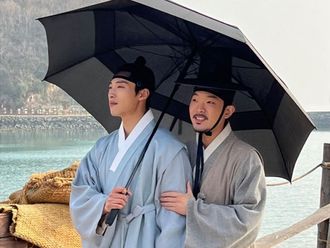If the thought of Ashton Kutcher playing Steve Jobs has you a little frightened, you’re not alone. The actor himself was worried about what he was getting into when he signed up for the title role in “jOBS,” Joshua Michael Stern’s biopic about the late Apple founder.
“This was honestly one of the most terrifying things I’ve ever tried to do in my life. I admired this man so much,” Kutcher told the audience at the movie’s Sundance Film Festival premiere on Friday night, the event’s closing-night ceremony. “I’ve thrown myself into this massive gauntlet of criticism,” he added, because Jobs is a figure so many people knew.
“I’ve never seen Abraham Lincoln walk into a room, but I’ve seen Steve Jobs walk into a room,” he said.
The audience that had just watched the film didn’t seem concerned, giving Kutcher a rousing response when he took the stage. The actor shows a certain commitment to the role, mimicking Jobs’ mannerisms, his bullheadedness and his walk. (And oh, that walk; Stern finds every camera angle imaginable to shoot Kutcher in that hunched-forward lope Jobs made famous.) Kutcher also apparently undertook a fruitarian diet to prepare for the role, a decision the actor said landed him in the hospital with pancreas issues.)
Starting off with a scene in which Jobs unveils the iPod to appreciative Apple employees in 2001, the film then backtracks to the beginning of Jobs’ career. Even casual viewers will know the basics: Jobs drops out of college (and drops acid), builds computers in a Northern California garage with tech-head Steve Wozniak (played convincingly by Josh Gad) and guides Apple to prominence before being ousted because of his preoccupation with a struggling Macintosh. A decade later, he makes a triumphant return to the company that gave him the boot.
Along the way there are associates telling the entrepreneur what a headstrong and self-defeating personality he can be (“You’re the beginning and the end of your own world, Steve, and it’s so small and it’s so sad and it’s got to be lonely”) while he looks to motivate others with his brand of hard-driving inspiration (“The people who think they are crazy enough to change the world are the ones who do”).
Surprisingly, the film omits the last decade of Jobs’ life, when some of the most important Apple inventions came into being and when Jobs’ legacy was cemented with the emergence of Pixar, which was acquired by Disney in 2006. The movie also avoids much of significance from Jobs’ personal realm; there are only a few scenes pertaining to his family life. It’s a decision Stern said was intentional--the director didn’t, he said, want to “embark on a lot of speculation.” (Stern did say that in his research he found Jobs harboured “a lot of sadness on some level, a lot of isolation.”) Kutcher, himself a big investor in tech companies, said he found much to relate to about the Apple founder, particularly his response to business failures. The former “That 70’s Show” star even compared acting to the choices the computer visionary faced. “Jobs had the compassion for the people he was building something for,” Kutcher said.
“When you make movies it’s [also] really easy to go, ‘How was I; was I OK?’ But that’s not the end goal. The end goal is to create something that moves people.” Stern said he couldn’t quite put into words why Kutcher was right but felt it in his gut. “All I can say is that it was obvious,” he said. “It was beyond the [physical] similarity. That really was a very superficial first step.”
“jOBS” has garnered criticism from Wozniak, who said a clip about Jobs’ early commitment to social change was inaccurate. Meanwhile, audiences will soon get to weigh in.
“jOBS” will be a test not only of the cinematic viability of the Apple story but of whether Kutcher’s ability to handle a serious role is, well, more MacBook Pro or Newton.












